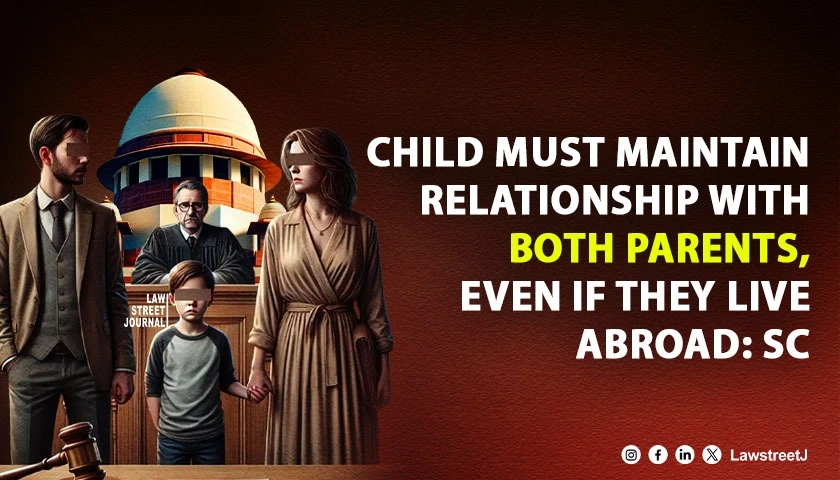New Delhi: Emphasizing that every child has an equal right to the love and affection of both parents, the Supreme Court has ruled that distance or even living in different countries cannot sever this bond. In a recent order, the Court granted a father video-conferencing rights to regularly interact with his nine-year-old son residing in Ireland with his mother.
The father had filed an appeal before the Supreme Court challenging the order of the Punjab & Haryana High Court. The dispute revolved around the custody of a minor child, currently living with his mother in Ireland. While the father had originally sought custody, he later confined his prayer to securing visitation rights through video-conferencing.
The facts reveal that the parents married on 26.11.2012, and their son was born on 18.01.2016. In 2017, the mother left the matrimonial home and filed for divorce under Section 13(1)(ia) and (ib) of the Hindu Marriage Act, 1955. The father initiated custody proceedings in 2018, and in 2019, the Family Court allowed him to meet the child twice a month at school.
Subsequently, when the mother intended to travel to Ireland, the parties attempted a settlement. They jointly filed for divorce by mutual consent along with an agreement on custody, but the compromise collapsed and the petition was withdrawn. Thereafter, the father filed a custody petition under Section 25 of the Guardians and Wards Act.
By an interim order dated 03.02.2022, the Family Court granted the father custody every Saturday and Sunday, subject to the condition that the child would not be taken outside Rohtak. However, in 2023, the Family Court dismissed his custody petition on the ground that he had violated interim conditions. The High Court upheld this dismissal, observing that the child had been living with his mother since 2017 and that no evidence suggested she was incapable of providing proper care.
Before the Supreme Court, the father did not press for custody but only sought visitation rights through video calls. The Bench emphasized that “the central question is not who is right or wrong as between the parents, but what arrangement will best serve the child. The emotional, mental, and physical well-being of the child must always come first.”
The Court also criticized the prolonged acrimony between the parents, observing: “Their personal differences have grown into a long and bitter conflict. However, the Court cannot allow the child to become a casualty of this conflict.” With regard to the child’s current situation, the Court noted that he is living with his mother in Ireland and is well-settled there, adding that it would not be in his interest to disturb that arrangement.
On visitation rights, the Court made a significant observation: “Every child has a right to the affection of both parents. Even if parents live apart or in different countries, it is important for the child to maintain a relationship with both of them. Denying such contact would deprive the child of the love, guidance, and emotional support of the father.”
Accordingly, the Supreme Court directed that the father would be entitled to interact with his son via video-conferencing every alternate Sunday for two hours. Both parties were instructed to cooperate in good faith to ensure smooth implementation of this arrangement.
Disclaimer: This content is produced and published by LawStreet Journal Media for informational purposes only and does not constitute legal advice. The views expressed are independent of any legal practice of the individuals involved.















